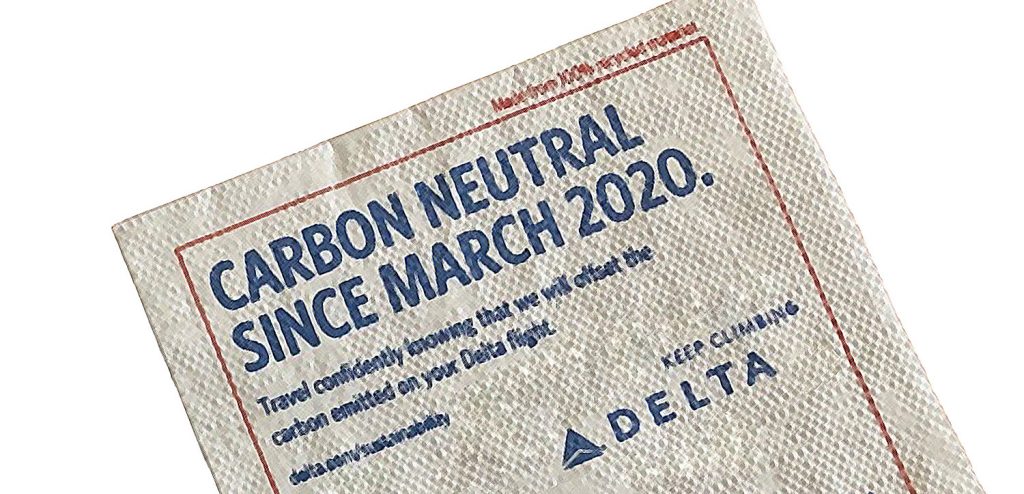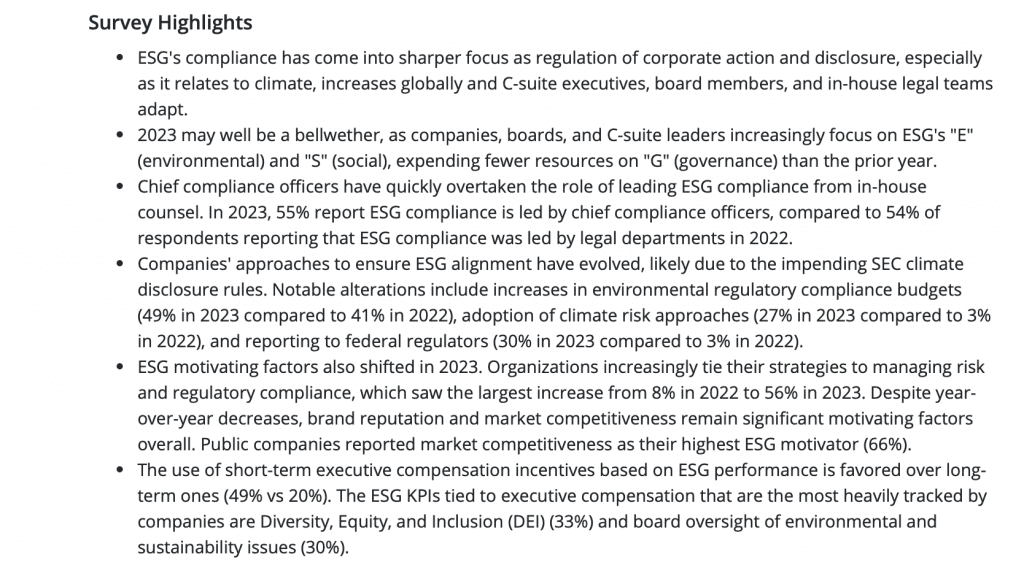Deep Dives
A recently-filed class action lawsuit accuses Delta Airlines of “grossly misrepresenting the total environmental impact of its business operations in its ads, corporate announcements, and [other] promotional materials,” and thereby, “attaining undeserved market share and extracting higher prices from consumers.” According to the complaint that she filed with the U.S. District Court for the Central District of California on May 30 on behalf of herself and other similarly situated individuals, Plaintiff Mayanna Berrin claims that Delta is engaging in false advertising and unfair competition under California state law and running afoul of California’s Consumers Legal Remedies Act.
At the heart of Berrin’s complaint is her claim that since March 2020, Delta has “repeatedly” touted itself as “the world’s first carbon-neutral airline” – thanks to its efforts to offset its emissions via participation in the voluntary carbon offset market – across various channels, “including advertisements, press releases, LinkedIn posts, podcasts, and in-flight napkins.” She alleges that “reasonable consumers reviewing these representations would believe that when taking account of all of [Delta’s] carbon emissions and related green investments, [it] has not been responsible for releasing any net additional carbon into the atmosphere since March 2020.”

The problem, according to Berrin is that she has “since discovered that any such representations are manifestly and provably false” – in large part because of “foundational issues” with the carbon offset market, such as “inaccurate accounting.”
Price Premium – As for the damage to consumers, Berrin relies on a “price premium” theory, arguing that she willingly purchased tickets for Delta flights “at a market premium due to her belief that by flying Delta she engaged in more ecologically conscious air travel and participated in a global transition away from carbon emissions.” Had she known at the time of purchase that “Delta’s carbon neutral representations were false,” Berrin says that she “would not have purchased [its] services, or at the very least would have paid substantially less for those services.”
Not an untested claim, other plaintiffs have successfully made price premium-based arguments in connection with companies’ allegedly deceptive ESG marketing claims. For instance, an SDNY judge held last year that a consumer who alleged that Niagara Bottling made the “false and misleading” representation that its water bottles are “100% Recyclable” adequately pled standing for damages (but not injunctive relief) by alleging that she paid a price premium based on Niagara’s misrepresentation.
On the flip-side: In a less successful attempt, Gerber Products escaped a class action lawsuit in October 2022, in which the plaintiffs had alleged that it deceptively led consumers to believe their baby food products were “healthy” and “safe” despite allegedly containing unsafe levels of toxic metals. In that case, an E.D. Virginia judge held that the plaintiffs failed to allege sufficient facts to support a finding of economic injury because there was no “actual or imminent” injury, and instead, merely alleged speculative risk of future harm, which was not enough to confer standing under either a price premium or a benefit of the bargain theory. (You can find the court’s order here.)
A rep for Delta said in response to the lawsuit that “Delta committed to carbon neutrality in March 2020, and since March 31, 2022, has fully transitioned its focus away from carbon offsets toward decarbonization of our operations, focusing our efforts on investing in sustainable aviation fuel, renewing our fleet for more fuel-efficient aircraft and implementing operational efficiencies.”
THE BIGGER PICTURE: The Delta lawsuit is being touted as one of the first major consumer cases that centers on claims of carbon neutrality, and it likely serves as the latest indication that climate-related class action complaints will continue to be filed against companies across industries – with varying outcomes. The lawsuit comes as companies across the globe simultaneously face pressure to make ESG/sustainability claims, and face risks in the form of action by consumer-plaintiffs and regulators, which are becoming increasingly skeptical about for greenwashing, or claims that “exaggerate or misrepresent” the impact or sustainability profile of their products and/or their operations more broadly.
Ellis v. Nike USA – Nike is being sued for allegedly duping consumers by marketing its sportswear offerings as “sustainable,” made with “sustainable materials,” and environmentally friendly when its products “do not live up to these claims.”
Hicks v. Grimmway Enterprises, Inc. – An S.D. Cal. judge recently held that Grimmway’s ESG Report – which is at the center of the false advertising and unlawful business practices lawsuit – constitutes commercial speech, making it so that the Report is exempt from anti-SLAPP protections.
Lizama v. H&M – H&M sidestepped a proposed class action lawsuit over its alleged scheme of greenwashing its fast fashion wares by marketing its Conscious collection products as “sustainable” or “environmentally friendly.” The case was dismissed in May.
Commodore v. H&M – A separate case accusing H&M of making use of misleading “‘environmental scorecards’ for its products called ‘Sustainability Profiles’” is still underway.
Researchers at the London School of Economics (“LSE”) and Political Science released a report last year that showed that climate change-related lawsuits are on the rise. In a more recent study, LSE researchers stated that as litigation in this space “evolves rapidly,” and the number of cases being filed against governments and companies continues to grow, we are starting to see some impact on companies’ stock prices as a result of such rising litigation. Noting that “communities and individuals are increasingly turning to courts to hold governments and high emitting corporations to account for the adverse consequences of climate change, and they are starting to find success,” an LSE working paper, entitled, “Impacts of climate litigation on firm value” states that for defendants, the rise in climate litigation risk stands to impact companies from a stock price POV.
Looking at U.S. and European-listed corporations – from ExxonMobil, Chevron, and BP to Walmart, Mercedes-Benz, and Coca-Cola, the LSE researchers found “a causal link” between climate litigation and stock prices. Specifically, they assert that the initiation of a lawsuit and/or an unfavorable court decision in a climate case is “estimated to reduce firm value by 0.41 percent on average, relative to expected values.”
“Larger market reactions” are observed for cases filed against Carbon Majors (the largest emitters operating in Energy, Utilities, and Materials). But fashion/retail industries entities may still be impacted, as “novel” cases (i.e., those involving a new form of legal argument or in a jurisdiction that has not previously seen a case) also give rise to “larger market reactions.”
And speaking of stock prices, law firm Morrison Foerster recently released a study of its own, which it derived from its second “GCs and ESG” survey. In connection with its survey, the firm found that “despite anti-ESG backlash, both public and private companies continued to move forward with processes and procedures to address environmental, social, and human capital (including DEI) concerns.” Public companies, in particular, rated “maintaining market competitiveness” as the biggest motivating factor for adopting ESG goals (66% vs 18% for private companies). Other key takeaways from the report include …
